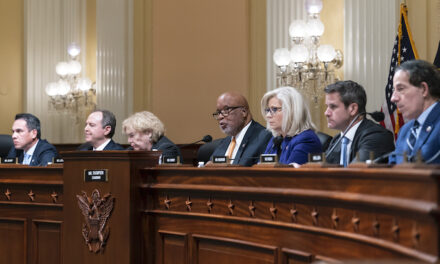President Joe Biden, we keep hearing, is a deeply empathetic man. It is that empathy that brought him to the presidency — his deep and abiding capacity to connect with others. In “What It Takes,” Richard Ben Cramer’s detailed blow-by-blow of the 1988 election cycle, Ben Cramer describes Biden’s ability to “connect” as his greatest supposed skill. This has been the pitch for Biden for decades: not much in the way of brains, not a tremendously resourceful politician, awkward on his feet — but he cares. In the words of Mark Gitenstein, Biden’s 1988 speechwriter and a four-decade adviser, “His ability to communicate with people in pain is maybe his most powerful strength.”
Or maybe, just maybe, Biden was never an empathetic man. Maybe he simply trafficked in ersatz empathy, all the while feeding his own narcissism.
That story certainly looks more plausible these days.
This week, Biden visited Maui. He did so nearly two weeks after the worst wildfire in modern American history killed hundreds of Americans. Meanwhile, Biden vacationed in Delaware on the beach, telling reporters he had “no comment” on the situation; he then jet-set off to Lake Tahoe before finally heading to Lahaina. Once he reached Hawaii, he proceeded to explain that he felt the pain of those whose family members had been incinerated. After all, he said, one time he experienced a small kitchen fire. “I don’t want to compare difficulties, but we have a little sense, Jill and I, of what it was like to lose a home,” he jabbered. “Years ago, now, 15 years, I was in Washington doing ‘Meet the press’… Lightning struck at home on a little lake outside the home, not a lake a big pond. It hit the wire and came up underneath our home, into the… air condition ducts. To make a long story short, I almost lost my wife, my ’67 Corvette and my cat.”
In reality, back in 2004, lightning caused a kitchen fire in Biden’s home that was put out in 20 minutes with no other damage.
If this were an isolated incident, we could chalk it up to Biden’s encroaching senility. But it isn’t. After presiding over the botched pullout from Afghanistan that resulted in the return of the Taliban, the murder of 13 American servicemembers, the abandonment of hundreds of American citizens and thousands of American green card holders, and the subjugation of some tens of millions of women, Biden essentially shrugged. Then, when faced with the families of wounded and killed American soldiers, he attempted to “feel their pain” by invoking the death of his son, Beau. According to Cheryl Rex, whose son died in the Abbey Gate bombing of Aug. 26, 2021, “His words to me were, ‘My wife, Jill, and I know how you feel. We lost our son as well and brought him home in a flag-draped coffin.'”
Biden has cited Beau in similar instances multiple times.
In the Jewish community, death of a loved one is followed by shiva, a seven-day period of mourning. During shiva, mourners don’t leave their homes; they are instead cared for by the community, provided with food and communal prayer. Members of the community visit the shiva house to provide comfort.
The first rule of visiting a shiva house: Don’t talk about your own experiences with death or pain. It’s gauche and irrelevant and trivializing.
Yet this is Biden’s first move.
Empathy is the quality of putting yourself in the place of others. But Biden isn’t an empath. He’s someone who believes that everyone else’s pain is merely a reflection of his own.
—
Ben Shapiro, 39, is a graduate of UCLA and Harvard Law School, host of “The Ben Shapiro Show,” and co-founder of Daily Wire+. He is a three-time New York Times bestselling author; his latest book is “The Authoritarian Moment: How The Left Weaponized America’s Institutions Against Dissent.” To find out more about Ben Shapiro and read features by other Creators Syndicate writers and cartoonists, visit the Creators Syndicate website at www.creators.com.
COPYRIGHT 2023 CREATORS.COM.



















Joe’s empathy for others stops at the point where his skin comes into the game. He is so empathetic solving social problems with other people’s money, but usually it is just some ploy to create a new government agency that allows him and his party to skim off their 10% or more to fund their next election steal, or fund their next family trip to Hawaii rewarding hundreds of his party apparatchiks with $1000/night hotel rooms at Hawaiian resorts in Maui, while passing out a mere $700 to each Maui Dumb Democrat that voted them into office, only to get no empathy for the governing incompetency that burned down their homes and towns, and took the lives of hundreds of their now missing children. Death follows their faux empathy wherever they con their way into power with Bill Clinton type “I feel Your Pain” promises to be humane, while corruptly running THE PEOPLE into debt to fiancé what their political party basket of despicables cannot pass through legal legislation.
DEMS Are ALWAYS FREE SPENDERS with other people’s money.
BUT WHEN IT COMES to being forced to use their OWN, they balk.
They left out “idiot”.